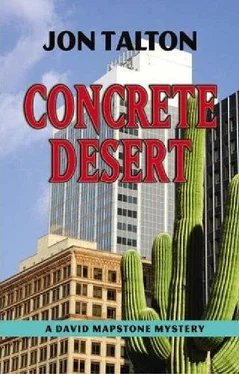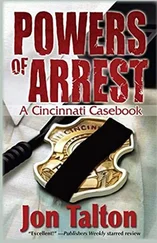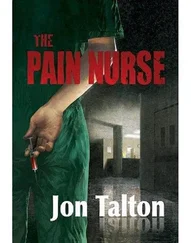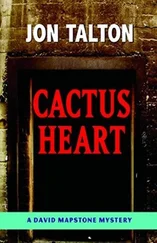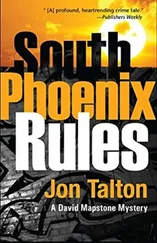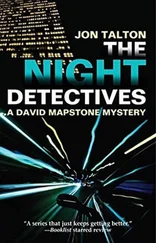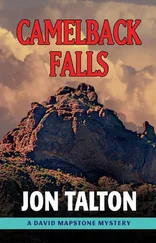Jon Talton - Concrete Desert
Здесь есть возможность читать онлайн «Jon Talton - Concrete Desert» весь текст электронной книги совершенно бесплатно (целиком полную версию без сокращений). В некоторых случаях можно слушать аудио, скачать через торрент в формате fb2 и присутствует краткое содержание. Жанр: Полицейский детектив, на английском языке. Описание произведения, (предисловие) а так же отзывы посетителей доступны на портале библиотеки ЛибКат.
- Название:Concrete Desert
- Автор:
- Жанр:
- Год:неизвестен
- ISBN:нет данных
- Рейтинг книги:5 / 5. Голосов: 1
-
Избранное:Добавить в избранное
- Отзывы:
-
Ваша оценка:
- 100
- 1
- 2
- 3
- 4
- 5
Concrete Desert: краткое содержание, описание и аннотация
Предлагаем к чтению аннотацию, описание, краткое содержание или предисловие (зависит от того, что написал сам автор книги «Concrete Desert»). Если вы не нашли необходимую информацию о книге — напишите в комментариях, мы постараемся отыскать её.
Concrete Desert — читать онлайн бесплатно полную книгу (весь текст) целиком
Ниже представлен текст книги, разбитый по страницам. Система сохранения места последней прочитанной страницы, позволяет с удобством читать онлайн бесплатно книгу «Concrete Desert», без необходимости каждый раз заново искать на чём Вы остановились. Поставьте закладку, и сможете в любой момент перейти на страницу, на которой закончили чтение.
Интервал:
Закладка:
Back in the bedroom, a queen-sized bed was neatly made. More clothes were piled onto a wicker basket. She had photos of Julie and her parents on the bedside table, as well as a paperback copy of Atlas Shrugged . I whispered the book’s first line in my head: “Who is John Galt?” I picked carefully through drawers, looked under her bed, pulled up the mattress. The closet was full of clothes and two pieces of luggage, both empty. The bathroom was spotless, but if she was off with a new lover, as Peralta was so sure, she’d left her diaphragm and a partly used tube of spermacide in the medicine chest.
I closed the cabinet gently enough to hear a movement on the carpet behind me, then to see a shadow against the wall. I’d like to say I didn’t jump.
“No, you get back,” she yelled, holding out a small can of Mace.
“Wait, I’m a cop,” I said, the words sounding so strange to me. She stepped back to the bedroom door. “I’m going to reach in my pocket for an ID.” I opened up the wallet with my star and identification. She read it, compared my face with the one on the ID card, and reluctantly put the Mace down.
She was not Phaedra, but she looked the way I might imagine Phaedra in, say, fifteen years. She was slim and fairly tall, wore a tailored charcoal gray suit, its skirt cut above the knees. Her strawberry blond hair fell to just above her shoulders, and her fine, high cheekbones had a heavy dusting of freckles. She stood, wary, watching me with green eyes.
“Mapstone,” she said. “What kind of name is that?”
“Welsh.”
“Ah. You look more like a college professor than a deputy,” she said. “What are you doing here?”
“I might ask you the same thing,” I said. “And I will. But I’d like to know who you are.”
“I’m Phaedra’s boss,” she said. “Susan Knightly. I run the photo studio where Phaedra was working. She’s my assistant.”
She dug into her shoulder bag and handed me a business card:
“Something’s wrong, isn’t it?” Susan Knightly asked.
“I don’t know,” I said. “Phaedra’s sister filed a missing person’s report.”
“Julie,” she said, with something untranslatable in those green eyes. “I know about that. Have you found her?”
I shook my head.
“I’ve been watering her plants, keeping an eye on the place. Phaedra had given me a key.”
That struck me as odd. Why hadn’t Julie told me this?
“Do you know where Phaedra is?” I asked.
“No idea,” she said. “She told me she might need to take a few days to take care of some business, and she asked me if I’d water her plants. Then I didn’t hear a word from her. I’ve been worried, but I didn’t know what else to do but wait, since Julie went to the police and all.”
“That’s how she put it? ‘Take care of some business’?” She nodded. “Did Phaedra seem different, upset?”
“She was a creative person, very tightly wound. But, yeah, she seemed, you know, strung out about something.”
“But no idea what?”
“No,” she said. “Here, help me water.” We went to the kitchen and filled a couple of pitchers. “Give the cactus just a shot. Give the ivies lots of water.”
“What kind of an employee was she?” I asked, moving over to one shelf of greenery.
“Very conscientious. Very hardworking. Being a photographer’s assistant can be real shit work, pardon my French. But Phaedra really worked.”
I asked Susan Knightly about her photo business.
“You have to do a little of everything to survive in this town. Some PR, some freelance for Phoenix Magazine , advertising, social scene. I don’t do weddings and babies, if that’s what you mean.” She examined me to see if I was a philistine, but declined to share the verdict. “I had a show at the Gilbert Gallery in Scottsdale earlier this year.”
I nodded, then asked, “Do you have any reason to believe Phaedra might have been a victim of foul play?”
“Of course I do,” she said, her voice gathering intensity. “That’s such a stupid cop question. Look at the newspaper every day: driveby shootings, kidnappings and rapes, random killings. My neighbor was mugged a week ago in broad daylight. An attractive young woman just doesn’t disappear like this.”
“My boss thinks she’s off with a new boyfriend. She has a history of that, you know.”
“Tell your boss I think he’s a pig,” she said. Then her face softened. “Phaedra really wants to be a photographer. It really bit her, and she’s worked hard. Has a good eye, too. Tell me why she would just walk away from the chance I was giving her, no matter how sexy a new boyfriend might be?”
It was a good question, and I didn’t have an answer for it yet.
I left Susan Knightly to finish watering the plants while I knocked on doors. I had deliberately come early to find people at home, but the neighbors had only a passing knowledge of Phaedra. Such was the norm in a transient city.
“She’s sure loud when she has sex,” the woman next door told me, blushing. “Makes me envious.” But the woman didn’t even know Phaedra’s name, much less actually see any men or realize she’d been gone for weeks. “I thought it was pretty quiet lately,” she allowed. The landlord said Ms. Riding had paid her rent three months ahead, and that was really all he cared about. By the time I left, I had again become accustomed to flashing my badge to get people to talk to me.
I had to move on. Class was at 10:30, but it went by quickly: lecture and discussion on the origins of the Civil War, two chapters to read before Friday. By the time I drove the three miles from Phoenix College to the Sheriff’s Office downtown, the temperature was well over 110 degrees. I regretted that I had worn a blue shirt, and I ran the Blazer’s air-conditioning on high to make some of the sweat disappear.
I spent the afternoon in Central Records, working on the Stokes case. If Rebecca Stokes had run into a serial killer nicknamed “the Creeper,” who was he and what might have happened to him?
I’m not great with computers, but a young deputy named Lindsey showed me how I could set up search parameters to comb the database for certain kinds of offenders from that era.
Lindsey had straight black hair, pale skin, a small gold stud in her left nostril, and very shapely legs set off by sheer black panty hose and a black miniskirt. She was pretty, but with a look of constant sardonic detachment. She asked why I wasn’t smiling, and I said, “I’m smiling inside.” She adjusted her oval tortoiseshell glasses and said, “There are no ironic deputies.” Then she smirked at me, and we became fast friends.
We looked for men with convictions for murder, assault, or rape, along with ones convicted of breaking and entering, who might have been in Phoenix in the late 1950s. We checked files from MCSO, the Phoenix Police Department, the Arizona Department of Corrections, and NCIC, the National Crime Information Center. By four o’clock, we had built a program to look for what we wanted. While Lindsey ran the computer, I looked the old-fashioned way, through my cache of records over at the old courthouse and in the microfilm of old newspapers. All this was an imprecise exercise, dealing with old data and a hundred variables, but it was information Peralta would want.
***
Wednesday night, I had dinner by myself at a little Cuban place off Camelback Road. I read Lindsey’s report and sipped a Negra Modelo from the bottle. Then, full and comfortable, I went back into the heat and drove home.
I turned onto my street just as the digital clock on the Blazer’s dash turned a phosphorescent green 10:00. The houses nearby were dark, the only sign of life being the sound of wind chimes across the street. When I was growing up, we all knew our neighbors. On the west was Mrs. Street, a widow who gave chocolate-chip cookies to the neighborhood kids. On the east were the Calhouns-I’d had a mammoth crush on Kathy Calhoun. Across the street were the Jarvises and the Herolds and old man Goodman-he hated it when we kids made noise. They were all gone now. I couldn’t tell you who my neighbors were. For ten years after my grandmother’s death, I had rented the house, returning only rarely. That seemed to have been enough time for the block to become a stranger to me.
Читать дальшеИнтервал:
Закладка:
Похожие книги на «Concrete Desert»
Представляем Вашему вниманию похожие книги на «Concrete Desert» списком для выбора. Мы отобрали схожую по названию и смыслу литературу в надежде предоставить читателям больше вариантов отыскать новые, интересные, ещё непрочитанные произведения.
Обсуждение, отзывы о книге «Concrete Desert» и просто собственные мнения читателей. Оставьте ваши комментарии, напишите, что Вы думаете о произведении, его смысле или главных героях. Укажите что конкретно понравилось, а что нет, и почему Вы так считаете.
